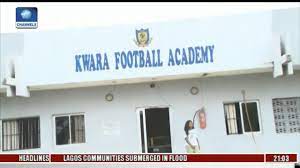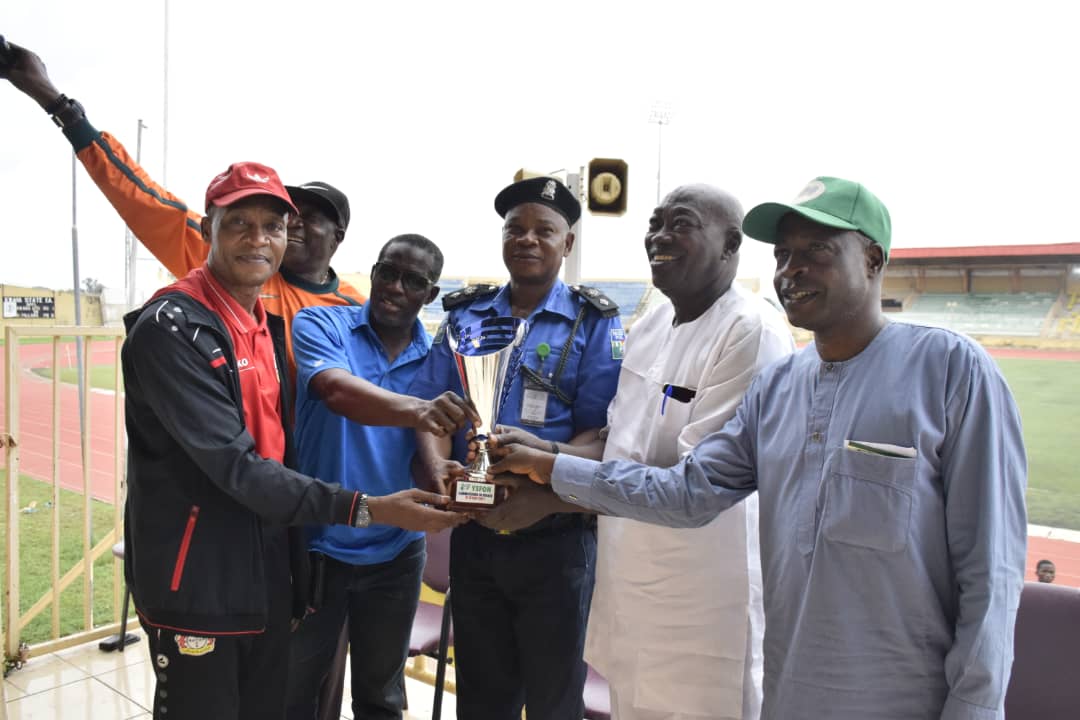Going by the current realities in and around the development of the round leather game in the world, and considering the potentials of Kwara Football Academy (KFA), an institution established in 2005 primarily to give opportunities to youth in both football and education, it’s a gold mine that’s yet to be fully tapped.
The Academy, which arguably has the best facilities in the country, has all the trappings of a complete business outfit in the footballing world, with youth engagement and development central to that initiative.
Administration of football, just like management, has all the characteristics of business. Business itself is the careful allocation of both human and material resources in achieving set goals and benefits, which includes, but not limited to, finding solution to negative features and the promotion of the positive ones.
But for the KFA, based on its current structure and arrangements, it needs absolute re-structuring, re- jigging and careful placement so as to meet the business needs of the modern-day management of football, as well as international best practices. Football, which is part of the ever-growing entertainment industries is pure business, absolutely, and KFA, a youth and football development citadel must be well tended and positioned to meet this modern-day criterion for real business.
Sportsbash.com.ng examines these realities, vis-a-vis the various efforts that had earlier been invested into making it a business hub in the footballing market with a view to proffering a way forward.
HISTORY
Introduced into the world footballing market in 2005, Kwara Football Academy was launched under the name, ‘Football College of Excellence’. It was with the vision of providing underprivileged teenagers with proper education and continues to give passionate young people the chance to live out what they have always dreamt of; to become professional footballers.
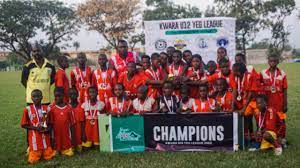
The Academy was established as a center for youth development, using football as the medium of empowerment. The foundation laying ceremony was performed by Hadji Issa Hayatou, then serving President of the Confederation of Africa Football (CAF) on September 22, 2005.
The Academy had former Nigeria Football Federation (NFF) President, Anthony Kodjo Williams as the Chairman/CEO while the pioneer Administrator was former Super Eagles coach, Clemens Westerhof.
After the disengagement of Kodjo Williams, Clemens Westerhof assumed full control of the Academy.
Others who have at one time or the other, served in that capacity are Clement Kumbi Titiloye and Kunle Ayantola, who was from Harmony Holdings Limited.
On March 13, 2009, the Nigeria Football Federation (NFF) in a paid advertisement declared that only the KFA and the Pepsi Football Academy satisfied conditions laid down for the establishment of Football Academies in the country.
Pepsi Football Academy, with financial backing from Seven-Up Bottling Company, was established in 1992 as off-campus school, at Agege Stadium, and was being managed by former Head of the Technical Department of the NFF, Chief Kashimawo Laloko, who is now late.
In her vision of using sports, especially football to empower the young ones, the state government adopted a Public Private Partnership (PPP) approach to introduce the Academy. It was a systematic strategy for the discovery and nurturing of talented young players regardless of place of origin in Nigeria.
The Academy provides a conducive and unique surrounding to keep youths away from drugs, violence and other unhealthy activities.
At inception in 2005, Football College of Excellence offers opportunity to acquire formal education for free while training as professional footballers. It offers a full on-campus boarding experience to enhance students’ concentration and engagement while in school.
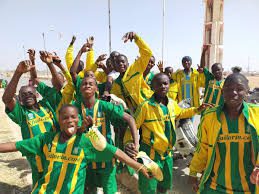
Between then and now, the operations and service delivery of the Academy has undergone various metamorphoses, each characterized by funding, with the owners, the Kwara state government defining modes of operation based on available resources.
This occasioned the changing of the name from Football College of Excellence to Kwara Football
Academy, as the state took full control of the Academy, placing it under the then Ministry of Sports and Youth Development.
KFA is currently being funded by the Kwara state government. The government at a point decided to partly privatize the institution. It constituted a Board of Trustees who included the business mogul, Alhaji Aliko Dangote, Hon Abubakar Kannike, who was then the Commissioner for Sports and Youth Development, Alhaji Jani Ibrahim of Lubcon Limited, former Super Eagles Skipper, Austin ‘Jay-Jay’Okocha and Charles Idowu (Round Square Technology).
The Academy was also at a time, adopted by Kwara Holdings Limited, which then supervises its operations and finances. Presently, it has been returned to the control of the Kwara State Sports Commission.
POTENTIALS
In an interview with The Herald recently, Mallam Bako Oladele Ibrahim, the 7th Administrator/CEO of KFA stressed that, “The Academy is providing a conducive and unique surrounding to keep youths away from drugs, violence and other unhealthy activities.
“The Academy is a centre for youth development, where young people are actively engaged thereby taking them away from vices and other unhealthy activities.”
According to him, with the right investment in manpower, funds and facility upgrade the Academy can put the state on the world map as a hot spot to scout for talents.
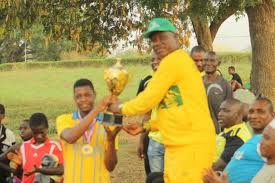
He also stressed the fact that the Academy can become a steady revenue front for the Kwara State Government if the Government can invest more in facility upgrade and aggressive marketing.
According to him, some of the founding facilities at the Academy need upgrade. He pointed out that the Academy can only compete favourable with academies abroad when it has modern state of the art facilities like provision of synthetic pitches to ease pressure on the grass pitches which is very expensive in face of inadequate resources, provision of modern training gears, provision of new blocks of administrative offices to accommodate staffers, upgrade of the medical facilities, and the road network at the Academy.
OPERATIONS
KFA trains footballers between the ages of 10 and 21 years to compete favourably with their counterparts at international levels. It is also focused on developing the skills of the footballers such that after graduation, they can pursue careers as professional footballers with international football clubs.
Today, the Academy operates a full-fledged secondary school which attracts school fees. In the secondary school, there are three categories; those in Red (junior players); those in Blue (the intermediate players) and those in Yellow, who are the senior players. There are few of the senior players in the classrooms. Those in school and those who are under-going pure football training are being trained together on the basics of the game. The school also offers scholarship to outstanding students.
The Academy has tested coaches who help to mode the young players. The institution invests in the upgrading of the knowledge of the coaches, so as to keep abreast of modern coaching methods. The coaches attend the annual NFF organizes Coaching Clinics and the CAF License Courses.
The Academy is credited with producing professionally trained footballers that have progressed on to joining major league football teams across Europe.
Apart from engaging the youths meaningfully, the Academy provides awareness for assisting the kids in translating their latent abilities into something worthy of pride and security in the future.
FACILITY
The Academy is situated on about 35 hectares of land within the Kwara State Stadium Complex in Ilorin.
The existing facilities have the capacity to accommodate 200 students. Some of the existing structures include: four standard football pitches well grassed with submersible sprinklers, one tennis court, one basketball court, one gymnasium, three blocks of students’ hostels (27 rooms each) and a medical center, common room, the kitchen, the cafeteria, blocks of classrooms.
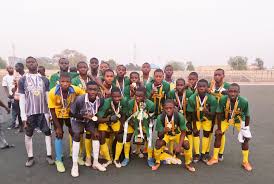
There is also the administrative block. The facilities are well spaced out, giving a calm and aesthetically pleasing touch to the environment.
ACHIEVEMENTS
Players of KFA have participated in try-outs with several international clubs, and most of its products are scattered all over Europe and other continents. The Academy also have various players in both Nigeria Professional Football League (NPFL) and Nigeria National League (NNL) clubs in Nigeria.
The Academy also has partnership with the Youth Sports Federation of Nigeria (YSFON), and Academies all over Nigeria, and are playing tournaments at intervals. The institution presently has about 200 players in about seven categories.
CHALLENGES
According to the KFA CEO, the major challenge of the institution is funding. A simple tour around the premises will confirm that the Academy is blessed with facilities. It has facilities to produce world class players. However, the institution is currently being financed with the proceeds from the secondary school wing.
Between 2007 and 2015, virtually all the players are on scholarship. The situation changed with the commercialization of the Academy in 2015 by Harmony Holdings, thereby stopping all budgetary allocations to the Academy, from where provisions were being made for those on scholarships. Running expenses/allocations also stopped in 2015.
It’s an institution that creates assurance, wealth and prosperity for a generation of future pro- footballers.
However, Mallam Bako Oladele Ibrahim, noted that the institution needs both human and financial resources to do the necessary things.
“First, we are building the Academy in consideration of all professional characteristics. To have professional players, there are guidelines. A player you don’t feed well and cater for cannot be your player. We want to use this opportunity to appeal to government for support in producing professional and quality players. In doing so, we have to give scholarship to players. We have talented players all around us, and for us to harvest these talents, we need support in terms of offering full scholarship to them,” he said.
Citing an example of the gym, the KFA boss disclosed that the material present in the gym and the gym itself is worth about 100 million but they are not in use. He said to put the gym in the best shape for use would require a lot of money. “And if we can put that gym in place it will go a long way in rebuilding the image of the Academy,” he stated.
On the need for more personnel, he revealed that the Academy with over 200 students have just seven coaches, which is grossly inadequate. He hinted that, already plans are in the pipeline to create more pitches, because of the population but there is need for more hands.
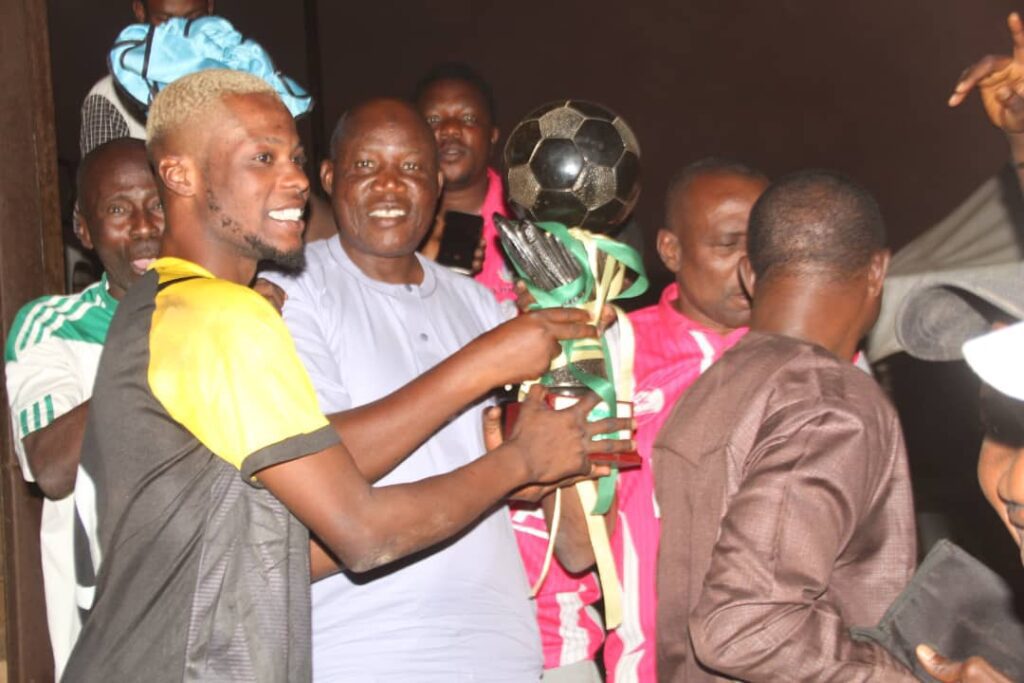
On revenue generation, Mallam disclosed that the Academy is a parastatal that is making money for the government but unfortunately because of lack of funding there are no record of sales of players.
“Dennis Bonaventure is the only player we have his records, and from where we get training compensation from. We have produced many players that we don’t have their records. We need operational expenses to trace some of these records.
The Academy has made a turnaround in revenue generation of over N4oomillion so far, from training and solidarity compensations to the Kwara state government coffers on only Dennis Bonaventure. The little support, more grounds will be broken, and this will result in more revenue.
“If we can get about N10m annually we will be able to facilitate many things. For an example, Serbia Football Academy invited us to Serbia for training tour but we couldn’t go because of funds. Again, five of our players have been on ground for more than a year now that have not gotten the opportunity to travel abroad because of lack of funds. Two of them were supposed to go to Poland, one to Spain, another to Czechs and Sweden, but no money to get them there.
“Yes, we have Agents ready to sponsor them, but government will lose because the Agent is to get as much as 80 percent of whatever comes from the deal while only 10 percent will come to the government. Some of our players were so lured away by Agents who tell them different forms of lies,” he stated.


